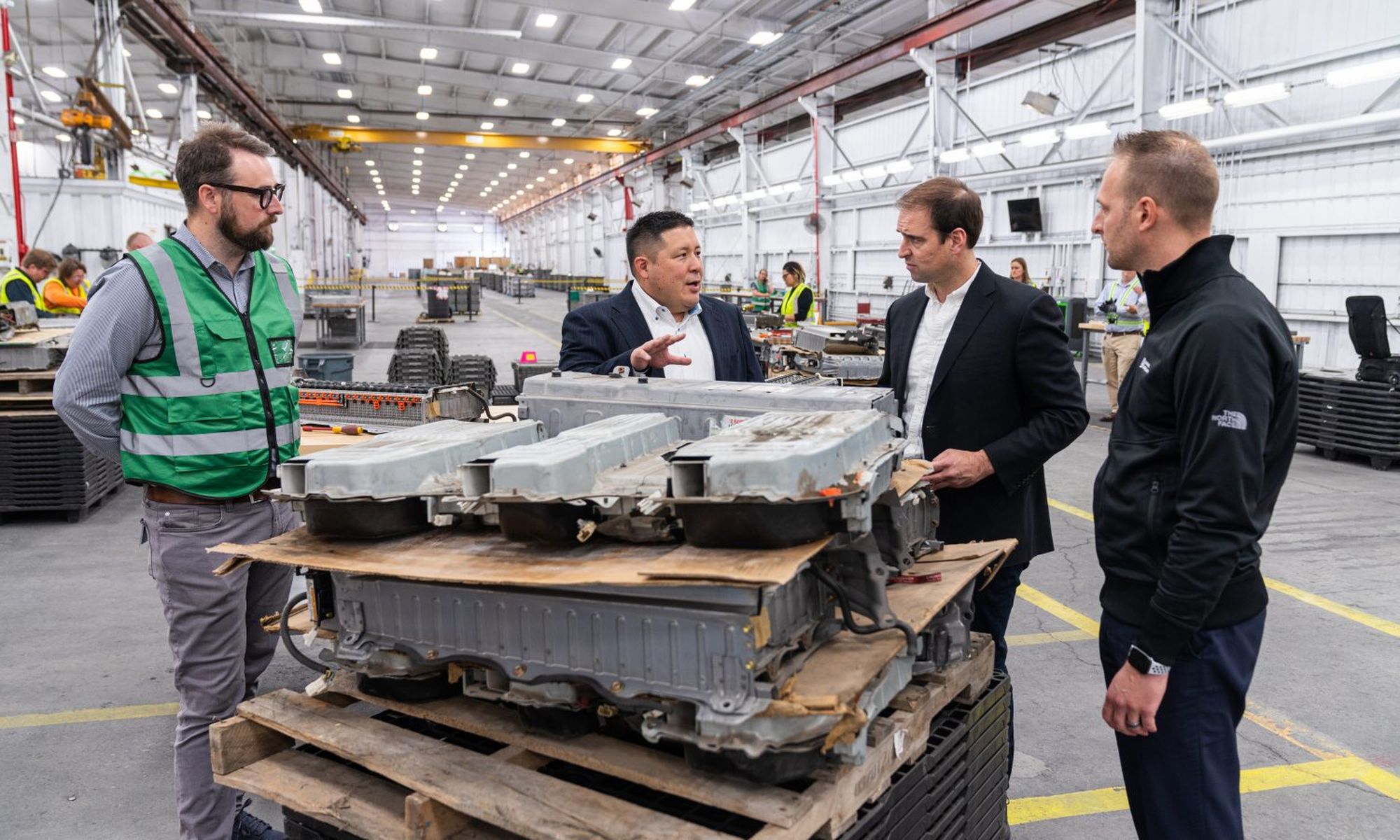
Jun 21, 2022
Redwood Materials and Toyota collaborate on electric vehicle battery collection, remanufacturing, recycling, and battery materials supply
Read post

For over 100 years, the auto recycling industry has played a crucial role in making sure vehicles get responsibly taken off the road and valuable parts don’t go to waste. That’s no different for electric vehicles—except now, what’s inside the battery matters more than ever. As more EVs hit the road, more are starting to come off too.
More than 100,000 EVs will retire from roads this year alone and when they do, the batteries inside won’t be junked; they’re packed with critical materials like lithium, nickel, and cobalt that can be recovered and reused. At Redwood, we work across the entire automotive ecosystem, from vehicle manufacturers to secondary handlers like automotive recyclers and dismantlers, to capture this value and build a circular battery and critical minerals supply chain.
When any vehicle – electric or internal combustion - reaches the end of its useful life, it can follow multiple paths. Some end up in repair shops or get traded in at dealerships, which are seeing more and more EVs every day. Other packs will go to auction, where they may be purchased by domestic auto dismantlers or exported overseas, often to countries with looser road safety or environmental regulations.
Across the U.S., there are over 9,000 auto recyclers and dismantlers, often referred to as ‘secondary handlers’ who process a variety of vehicles. Now with EVs, they’re on the front lines of removing and identifying battery packs. We partner with them to make sure they have the right tools, training, and support to identify battery packs and help transport them safely to Redwood. From there, our team determines the best path forward: some batteries still have enough life to be remanufactured or reused, while others are ready to be recycled. We recover more than 95% of the critical minerals inside – like lithium, cobalt, nickel, and copper - and return these elements to the supply chain, reducing reliance on mining and keeping materials local.
Today, Redwood receives the vast majority of EV packs and other lithium-ion batteries in North America, and we’re building a circular supply chain alongside dismantlers, dealers, and automakers across the industry. In 2024, we recycled more than 20 GWh of lithium-ion batteries, enough to power over 250,000 new electric vehicles.
The auto recycling community has been safely processing vehicles for more than a century, and EVs are no different. What’s changed is that every battery now holds critical minerals we can recover and reuse—helping strengthen the domestic supply chain and reduce our reliance on mining and imports. Together, we’re turning end-of-life vehicles into a new beginning for American industry.